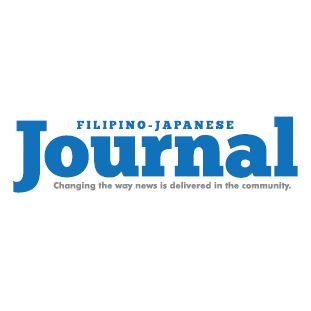TOKYO – The National Union of Journalists of the Philippines (NUJP) has been recently recognized with the Asia Honorable Mention Freedom of the Press Award by the Foreign Correspondents’ Club of Japan (FCCJ) for its efforts in “upholding the values of a free press” in the region.
This recognition has boosted the morale of Filipino journalists amid an increasingly challenging working environment.
“We hope that this will help send the message that the media in the Philippines is not alone, because it is easy to feel overwhelmed by the challenges of the profession when you feel unseen and unheard,” Jonathan De Santos, Chairperson of the NUJP, told the Filipino-Japanese Journal.
De Santos emphasized that the accolade not only honors their commitment but also demonstrates gestures of solidarity from fellow journalists in Japan.
Formed in 1986, the NUJP aims to uphold press freedom, safeguard journalists from attacks, threats, and harassment, and organize media workers to improve their working conditions.
De Santos noted that although journalists in the Philippines have legal protections under the Constitution, they face numerous challenges, including the threat of libel cases, physical violence, and harassment, particularly for those covering environmental and human rights issues. Red-tagging, where journalists are unjustly labeled as communist sympathizers, often leads to severe consequences such as surveillance, harassment, and even arrests.
“In general, attacks are done by local government officials who may feel offended by unflattering reports,” he said. “Some attacks, like red-tagging, have been documented to have involved military and police personnel.”
He pointed out that the Cybercrime Prevention Act imposes a penalty one degree higher for crimes committed using a computer system, meaning that most media reports, being online, could potentially be subject to a cyberlibel complaint. The period to file a complaint is also longer – more than a decade since publication – which poses a threat to journalists long after they may have left the profession.
“This has contributed to a chilling effect on the media, where journalists could be pressured to temper or abandon stories because of the legitimate fear of litigation and imprisonment,” he said.
De Santos also mentioned that the Anti-Terrorism Law remains a “threat,” with community journalists sometimes being charged under it.
“Interviewing or writing about the views of people and groups that the government considers ‘terrorist’ (even without a formal declaration by the court) also risks being charged, for example, with providing support or recruiting on their behalf,” he said.
According to the Committee to Protect Journalists (CPJ), 96 journalists have been killed in the Philippines in connection with their work since 1992.
In its 2023 Global Impunity Index, the Philippines ranked eighth, indicating a troubling reality where the killers of journalists are frequently able to escape punishment.
“The loss of any colleague, no matter where they are in the world, is a loss for our entire profession,” said Jodie Ginsberg, Chief Executive Officer of the CPJ, in a keynote speech via Zoom during the award ceremony.
David McNeill, Co-chair of the FCCJ Freedom of Press Committee, stated that despite its friendliness, the Philippines remains one of the most dangerous places in the world for journalists.
Since the beginning of the Marcos Jr. administration, the NUJP has documented 139 incidents of attacks on press freedom, including the killings of radio broadcasters Percival “Perci Lapid” Mabasa and Juan Jumalon.
Despite these daunting challenges, the NUJP remains steadfast in its mission to protect and empower journalists. The organization operates a safety office to document threats and provide safety training, particularly for those covering conflict zones. It also advocates for better working conditions, believing that well-compensated and secure journalists can perform their duties with greater integrity and courage.
Public and international support play a crucial role in bolstering press freedom in the Philippines. The NUJP encourages widespread consumption and sharing of their reports and welcomes solidarity through amplified campaigns and donations to their legal defense and emergency funds for journalists.
De Santos said that Filipino journalists remain motivated by their vital role in building democracy and informing their communities. This sense of duty, coupled with a supportive community and the recognition of their efforts, keeps them resilient.
“But, of course, enthusiasm and idealism should also be matched by dignified compensation and working conditions that will allow journalists to do their jobs while also living full lives,” he noted.
To young journalists entering the field, De Santos advised: “Journalism and the freedom of the press have always been challenged, but it is easier to move past those challenges together as a community. We do not have to do it alone, or feel that we are doing it alone, because there is a community – in the beats we cover, across newsrooms, and across borders – that is working together to improve and progress the profession. And while it is sometimes easy to romanticize the profession and those who are in it, we have to remember that, in the end, we are doing this for the communities that we report on and report for,” he stressed.
By honoring the NUJP, the FCCJ not only celebrates their contributions and resilience but also strengthens the global alliance of journalists dedicated to the relentless pursuit of truth. - Florenda Corpuz
(Photo: Screengrab from FCCJ/YouTube)


